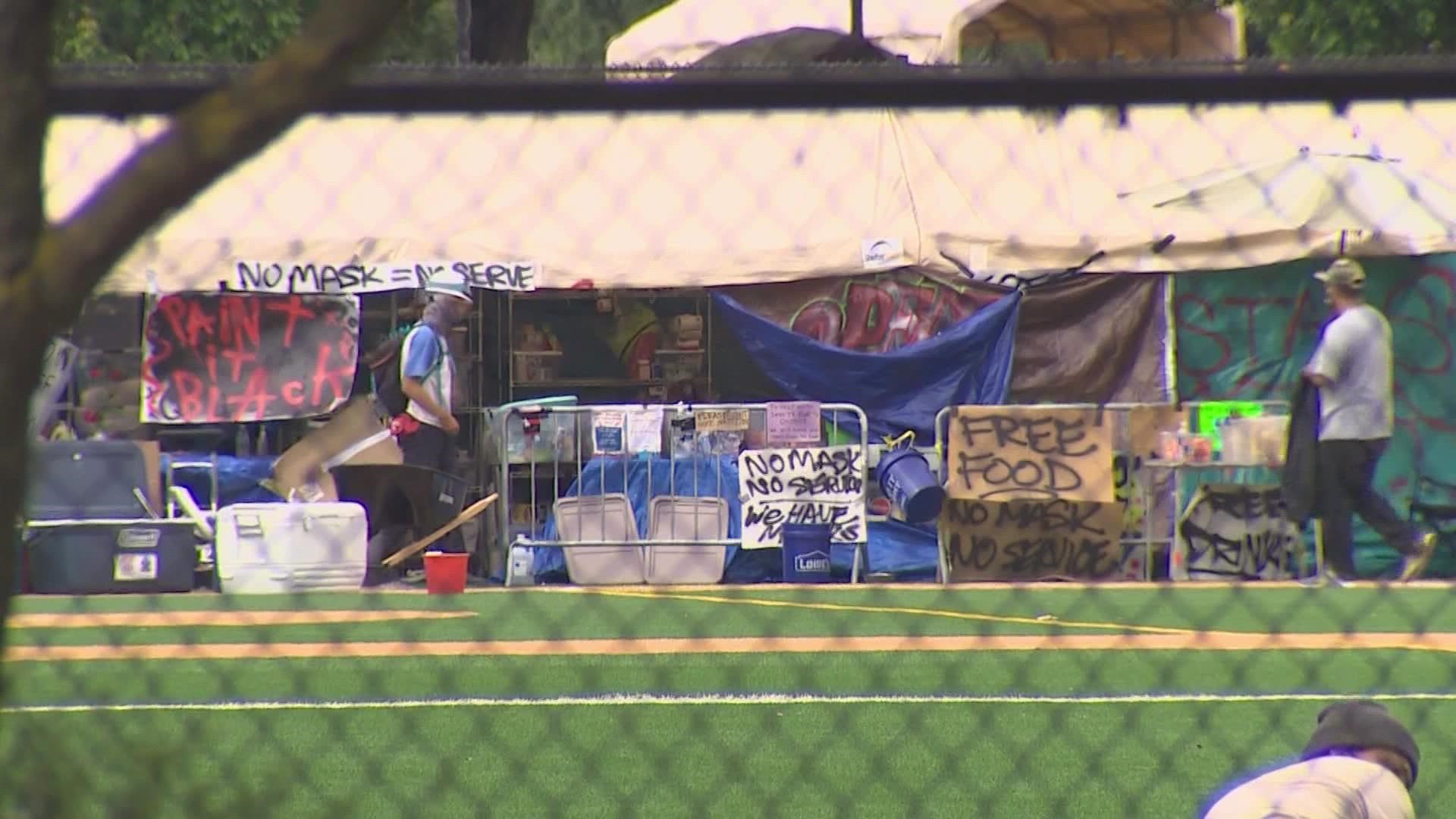SEATTLE — A lawsuit filed against the city of Seattle will be heard in the Ninth Circuit Federal Court of Appeals on Monday.
Donnitta Sinclair is suing the city after her special needs son was shot and killed inside Seattle’s Capitol Hill Occupied Protest zone, also known as CHOP, on June 20, 2020. Horace Lorenzo Anderson was killed near Cal Anderson Park after the city abruptly abandoned the Seattle Police Department’s (SPD) East Precinct.
The protests followed the police killing of George Floyd in Minneapolis.
Former Washington State Supreme Court Justice Phil Talmadge will argue the case for Sinclair, who is represented by attorney Mark Lindquist.
Sinclair's lawsuit, filed by Lindquist in 2021, alleges the city’s unprecedented decision to abandon the East Precinct "cutting off essential services and creating a 'no-cop zone' in an urban area" invited lawlessness and created a foreseeable danger. The suit also accuses the city of failing to assist Anderson with needed medical aid after he was shot.
“We’re confident the appellate court will see the legal and moral justification for holding the city accountable,” said Lindquist. “Donnitta deserves justice, and so does our community.”
Sinclair claims then-Seattle Mayor Jenny Durkan's comments in a CNN interview downplayed the violence inside the CHOP, which may have lured people like her son to go to the area. Durkan was quoted in a CNN interview referring to the CHOP as a "block party" and a "summer of love."
The night Anderson was shot, he was captured on surveillance video from a local business interacting with a man named Marcel Long, who pulled a gun out. According to the family attorney, Anderson walked away, and Long, who was briefly held back by others, ran after Anderson and shot him.
The King County Prosecutor’s Office charged Long with first-degree murder. He was arrested and is in custody pending trial.
Civilians eventually drove Anderson to Seattle’s Harborview Medical Center where he died.
Lindquist said Seattle officials initially claimed personnel failed to provide aid to Anderson because the CHOP was too dangerous, though evidence indicates the delay was due to miscommunication between police and fire personnel.
The lawsuit was initially dismissed by a federal court trial judge who found the city did not create "a particularized danger." Now on appeal, Lindquist said Sinclair is arguing the city not only created a real and foreseeable danger but also lured people into the CHOP by downplaying the danger.
A spokesperson for the Seattle City Attorney's Office issued a statement saying:
This a tragic case, and the alleged shooter has been arrested, charged, and is scheduled for trial. The City has already settled the claims of the Estate of Ms. Sinclair’s son, and Ms. Sinclair is one of two heirs to the estate. This federal lawsuit seeks additional recovery. The federal district court ruled that Ms. Sinclair did not state a valid claim, and the argument today addressed Ms. Sinclair’s appeal from that district court ruling.
Earlier this month, the Office of Inspector General released a report identifying critical errors by the city of Seattle and SPD leading up to and during the Capitol Hill Occupied Protest.
The 81-page report is the result of a Sentinel Event Review in which a panel of community members and SPD representatives identified decisions made and actions taken by the city and the SPD. Some of those decisions "eroded public trust" and led to "poor policing outcomes" between June 8, when the CHOP was formed in Capitol Hill, and July 1, when Durkan ordered the police department to disband the occupied protest.
The report began by analyzing the city's "unprecedented" decision to evacuate the East Precinct based on intelligence from the FBI that protesters planned to target government buildings and also in the hopes of de-escalating tensions between police and protestors. The SPD evacuated the precinct on June 8. SPD was supposed to return to the precinct the next day, but it remained empty for the next 23 days.
The move led to complaints that SPD's evacuation from the precinct resulted in the establishment of the CHOP, which has been criticized for criminal activity.
The zone experienced four shootings in 10 days, which resulted in the deaths of two teens, one of whom was Anderson.

